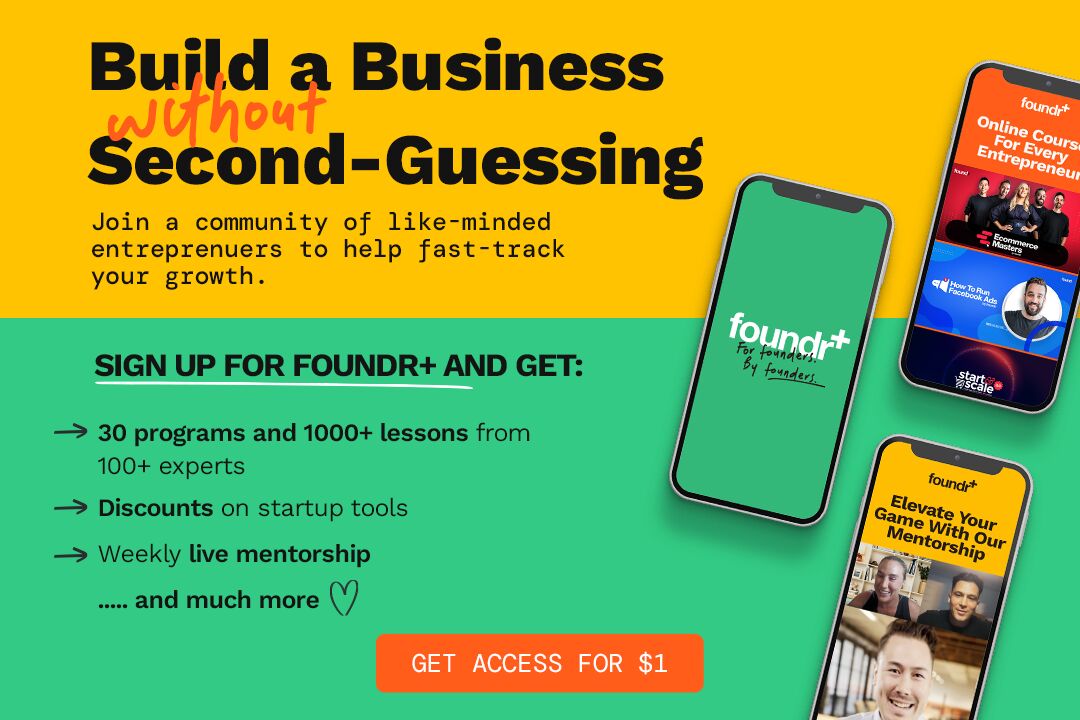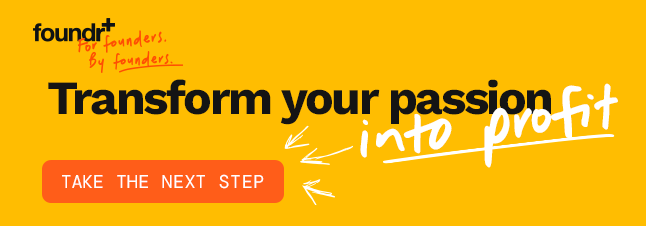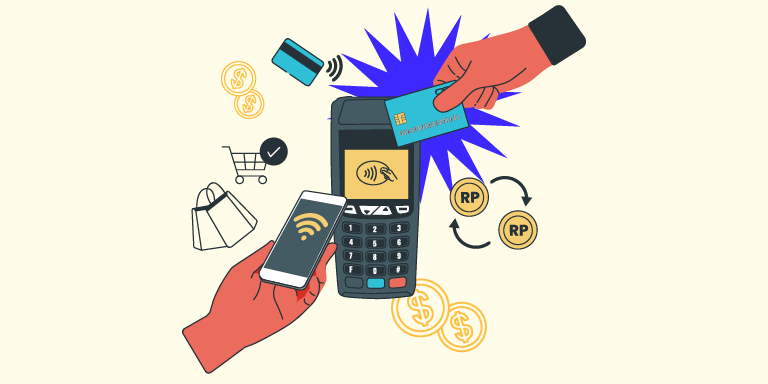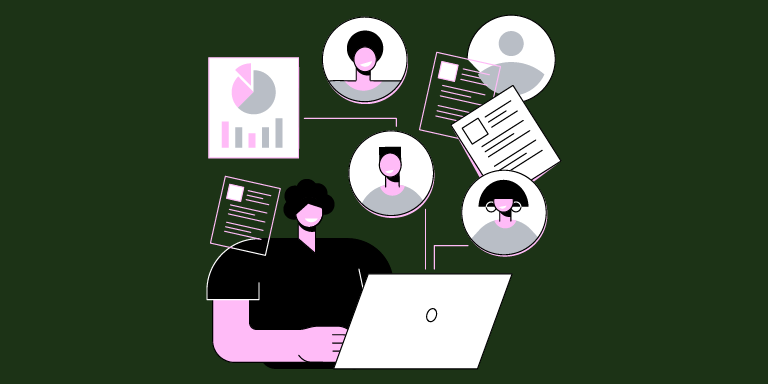Every consultant needs a go-to consulting proposal template because proposals are an expected and essential part of the client acquisition process. Whether you’re crafting a proposal for a specific project or looking to land a long-term client, the process of drafting a proposal can seem rather daunting, especially if you don’t have a consulting proposal sample that you can reference.
That’s exactly why we’re going to run you through everything you need to submit a proposal with confidence. We’ll explore the key components of writing proposals, navigating the process with your prospective clients, tools that will help you gain an edge on the competition, and provide you with a consulting proposal template.
Table of Contents
What Is a Consulting Proposal?
How to Use a Consulting Proposal Template
What to Do Before You Create a Consulting Proposal
How to Write a Consulting Proposal
The Best Consulting Proposal Tools
Good Consulting Proposal Examples
Top Tips to Help You Draft That Winning Proposal
Consulting Proposal Template FAQs
What Is a Consulting Proposal?
A consulting proposal is a document that outlines everything that you, as a consultant, would deliver for a potential project or client, while also working double duty as a marketing proposal that showcases why your experiences and skills would make you the right consultant for the job.
How to Use a Consulting Proposal Template
An external consulting proposal template, like the one included in this guide, can help you get started in the proposal process. It’s always easier to have a clear vision of your endgame when you have examples you can reference.
Once you have your first proposal created, you’ll want to save a version as your own template. This pared-down version will already have the elements of your proposal that stay the same from client to client. That way you’ll be able to easily and quickly spin up a new proposal anytime you need one, increasing the ROI on the time and energy you spend creating proposals for prospective clients.
Don’t Skip: How to Get a Consulting Job in 6 Steps
What to Do Before You Create a Consulting Proposal
The consulting proposal comes towards the end of the client acquisition process. To successfully turn a potential client into a new client, you want to follow these steps before you pull out your consulting proposal template.
1. Get Them on the Phone or Meet in Person First
You should do your best to get your prospect on the phone, or even better, meet them in person before you even talk about submitting a proposal. Hearing your voice or seeing your face will do wonders for building trust with your prospective client.
Timing is key. Only send a consulting proposal after you’ve had a successful initial phone call or meeting with the prospect. If someone’s asking you to submit proposals without having spoken to you first, the chances of wowing them are very low. While a consulting proposal can be a powerful tool for winning clients, it’s not the only one, or the first one you should reach for.
Note: There are times when a company will put out a Request for Proposals (RFP) during which anyone can submit a proposal without any contact with the company beforehand. Obviously, in these cases, competition is fiercer and your chances of winning are lower.
2. Ensure You Fully Understand Your Potential Client’s Problem, Wants, and Needs
You need to understand your prospect’s true desires. It’s not just about what they tell you they want (a new website). You need to dig deeper to find the motivation behind the project (a new website for them to showcase and sell their artwork more efficiently).
Take notes so that you can reference your client’s problem and their desires in the proposal. This shows you were listening to them and that you understand what’s necessary in order for the work to be successful. Doing so may also help you benefit from a psychological phenomenon known as the chameleon effect, where one person mimics the other to gain empathy. It occurs in social situations where people are trying to build rapport and, interestingly enough, is the reason some people pick up the accents of the places they travel to or live in.
3. Create a Value Proposition That’s as Specific as Possible
If you haven’t already, take some time to develop your unique value. The perfect proposal will include a clear, specific, and actionable value proposition. Don’t make the mistake of stuffing your proposals with accolades and fluffy jargon that make your work sound important.
At the end of the day, the client wants to know what you’ll do for them. So instead of saying, “Using my patent-pending business streamlining formula, I will conduct a business analysis that generates your optimal productivity and organization workflow,” try, “After thoroughly reviewing your business, I will create a strategy document that will save you 20 hours a month in lost productivity.”
4. Properly Evaluate the Project Scope/Timeline and the Value You Provide
Clearly outlined expectations will set you up for a productive client relationship and help you avoid project scope creep. It will also help you to accurately provide estimates on your consulting fees.
You can gain a proper understanding of the scope of a project by first sending a questionnaire that addresses an overview of your potential client’s needs. Once you’ve developed a broad understanding of what the project entails, the next step is to ensure you schedule a phone call to gain a more nuanced understanding of what is needed and expected.
5. Be Open to Making Mistakes
If you’re new to consulting or freelancing, you probably will make mistakes when it comes to evaluating scope and timeline. That’s a natural part of the consulting learning curve. As you get your project reps, you’ll develop the experience necessary to accurately estimate how long the work will take you.
The same goes for the proposal creation process. As you write more proposals and gather more data about your workflow, it’ll get faster and more accurate each time. Be open to making mistakes; you’ll learn quickly from them.
How to Write a Consulting Proposal
A consulting proposal can make or break your budding relationship with a potential client. As you build your consulting business, you can benefit from creating a consulting proposal template that you can update and adjust for each prospective client.
Every great consulting proposal should have the following elements:
- Cover page
- Executive summary
- Project outline/scope of work
- Timeline
- Fees, billing, and payment Terms
- Client requirements
- Expiration date
- Third-Party Cost Disclaimer
- Contract Terms
- Indemnities
Cover Page
A cover page is exactly that, a cover for your proposal that displays your company’s brand, the client’s name, project, and date for reference.
Executive Summary
An executive summary provides a one-page overview of the entire project. The executive summary should broadly highlight the client’s issues and challenges, and how you plan on tackling or addressing them. Think of it as a distillation of the most important information, a “too long, didn’t read” summary for executives who might not have the time or inclination to read the full proposal.
Project Outline/Scope of Work
The project outline states what you will (and will not) do for the proposed fee. Clearly describe the scope of work, including the scope and quantity of deliverables, time frames, and any other necessary expectations for the work. You want to be ultra-specific because if you encounter scope creep, you’ll have this document for reference.
If you’re being hired to write for a client’s blog, be sure to outline how many words you will write, how many revisions are included, etc. If you’re being hired as a life coach, specify how many coaching calls are included, how long each call will be, if there will be any email support allowed, etc. You don’t want to leave any room for confusion here or you might lose out on time and money.
Deliverables
You might also find it necessary to outline deliverables. Deliverables are the identifiable end products you will be “delivering” to the client.
While there can be a lot of overlap between “deliverables” and “project outline/scope of work,” the difference between the scope of work and deliverables might be best explained with an example.
Let’s say you’re a freelance copywriter being hired to write an ebook to generate leads for a company. Your scope of work section might include things like learning more about the company’s brand, researching competitors, writing the ebook, and revising it.
Your deliverable, however, might be a 10,000-word ebook, fully formatted and delivered via Google Docs.
Timeline
A good consulting proposal manages expectations so no unwanted surprises pop up. Part of that requires outlining when you expect to complete the project.
In your timeline section, answer the following questions:
- When does the project begin?
- When does the project end?
- Are there any milestones in between?
With long projects, it can be helpful to have checkpoints for completed work. This can help you manage your time and build confidence in the client that things are going as planned.
You can also use milestones to release partial payment of funds. Just be sure not to pin yourself down with too many milestones, to allow some flexibility in your workflow.
Fees, Billing, and Payment Terms
Make it clear what your fees are and what they include. Also, specify due dates, accepted payment methods, and payment terms. For example, if you require a 50 percent initial payment, make sure you clearly state that you will not begin work until the client has submitted the first payment.
In a schedule/addendum to the contract, it is advisable to always include:
- Billing milestones, due dates, and amounts
- Billing methods
- Late fee policy and collection costs associated with having to pursue late payments
- An outline of your pricing structure, any volume discounts, periodic rebates, and agreed
rate cards under the contract
Learn More: Consulting Fees: How Much Should You Charge as a Consultant?
Client Requirements
Many times, when there are delays on consulting projects, the bottleneck lies with the client. For example, every web developer knows the pain of being stalled on a build because they’re waiting on assets from the client. If any part of your job could be stalled due to client delays, make sure to list it in the client requirements.
Expiration Date
Putting an expiration date on the proposal protects you from having a prospective client come to you three months later wanting to accept your proposal. By that time, you might be fully booked or your prices might be higher. A client can’t reasonably expect you to drop everything and fulfill the project in your proposal if they don’t act quickly. That’s why it’s strongly recommended that you provide the client with a proposal expiration date.
Third Party Cost Disclaimer
You may often find yourself in situations where you prescribe third party tools for the client that your team uses to manage certain aspects of their digital ecosystem such as google ads,
marketing automation, etc.
You don’t want to get stung with having to be the license holder for their data, so it is advised you have a clause to ensure the client is paying for these services directly, and that you are not liable if the third party service fails.
In your third party disclaimer make it clear that:
- The client is responsible for the payment of third party costs
- The client will not be able to terminate the contract if you did not deliver because the client
failed to pay third party costs - The client’s prior approval is required of the tools you propose and put forward.
Contract Terms
Some consultants will send over a proposal for the client to sign and approve first, then will send over a separate contract for the client to sign. Having your proposal work as a contract, too, can save you time and energy—two essential commodities for any entrepreneur.
If you choose to make yours a proposal-contract combination, add any terms and conditions here. Common terms include cancellation, payment terms, and an independent contractor clause. If you need help, use a proposal template from any of the services mentioned above.
We’ve created this handy jargon-buster, which outlines some of the most common terms that you may encounter when negotiating an agency contract
with your customers and is presented in alphabetical order.
Indemnities
Protection is a two way street, and ensuring the indemnities are not skewed to one party is critical. Indemnities protect one party from a contract from suffering financial loss in relation to certain eventualities. Indemnity clauses are found in a wide variety of legal agreements, and this is one area that parties often spend a great deal of time negotiating.
An indemnity clause is often the cause for disputes and compromises of two key elements:
- The trigger: a description of the specific event or set of circumstances triggering
the indemnity. - Payment and a description of the types of loss which the indemnifying party
should be liable for.
So, make sure you:
- Undertake a risk assessment to fully understand the risks you would be assuming.
- Understand what you are expected to do.
- Understand the consequences of breaching the indemnities you agree to.
- Check for any liabilities not covered by your insurance provider. Contact your broker or
insurer directly to double check.
Consulting Proposal Template
Follow this template to quickly draft your first consulting proposal.
Cover Page:
[Your company’s name/branding]
[Client’s name]
[Project name]
[Date of proposal]
Executive Summary:
[Provide a brief overview of the proposed project. Highlight the client’s issues and challenges, along with how you plan to address them. Limit the summary to one page or less.]
Project Outline/Scope of Work:
[Clearly state what you will and will not do for the proposed fee. Be as specific as possible.]
Deliverables:
[Outline the identifiable end products you will deliver to the client.]
Timeline:
[State when the project will begin and end, along with any important milestones in between.]
Fees and Payment Terms:
[List your fees—and indicate what they do and do not include. Specify due dates, accepted payment methods, and the payment terms.]
Client Requirements:
[If any part of your job could be stalled due to client delays, make sure to list it here.]
Expiration Date:
[Provide the date when the proposal will expire.]
Contract Terms (Optional):
[Add any terms and conditions here if you choose to make yours a proposal-contract combination.]
The Best Consulting Proposal Tools
Whether you’re drafting a sample proposal, proposal letter, or just researching proposal software, these tools can help.
Eversign
Every proposal needs a signature and Eversign makes it easy to get your documents e-signed. You can either type, draw, or upload your signature to the service and then “stamp” your signature onto any document.
If you use the free version, you can sign up to five documents for signing every month. That limit is lifted with their Basic plan which costs $9.99 a month, or $7.99 if billed annually.
AND.CO
AND.CO allows you to draft proposals and contracts (it has free templates for both), which you can then email to your client via its platform. As a bonus, you’ll get email notifications when your proposal is viewed, and your client can e-sign and pay you online.
AND.CO offers a free plan which supports 1 client and their branding watermarked on your documents. Their PRO plan lifts the client limit, removes watermarking, and allows you to edit their contract templates for $18 a month.
Honeybook
Honeybook is a paid service that lets you create proposals and contracts, send them for e-sign, get notifications when they’ve been viewed, and accept payments online. It’s a little more pricey at $40 per month or $400 annually, but it really is an all-in-one solution.
Bonsai
Bonsai is another paid all-in-one suite of services with proposals, invoicing capabilities, contract signing, and client CRM features that are similar to Honeybook. With Bonsai, you can create proposals, email them to be signed, receive notifications when they’re viewed, and get paid online. Their freelance service proposal templates are beautifully designed, and there are a variety of choices.
Bonsai’s basic “Workflow” plan costs $19 a month and offers everything you need to get going.
Better Proposals
Simple yet powerful, Better Proposals is a paid proposal writing software that’s popular for its trackable proposals and beautiful, modern consulting template design. You’ll get notifications when your proposal is viewed and e-signed, and you can get paid online.
Their Starter plan allows for 10 proposals a month at just $19/mo. That limit is increased to 50 proposals in their Premium plan for $50 a month.
Any Word Processor
If you want to keep it low-cost and no-frills, you can simply fire up Microsoft Word, Google Docs, or any other word processor, and type up your consulting proposal. Google Docs actually offers a few really great project proposal templates in their Template Gallery.
From there, simply export it as a PDF and sign it in Eversign.
Good Consulting Proposal Examples
Now that we’ve gone over the steps to creating a consulting proposal that’s stellar, it’ll be helpful to see real-life examples. Review these good consulting proposal examples to discover what makes each of them special.
PR Consulting Proposal Example
This public relations proposal template from PandaDoc showcases a strong cover page. It starts with addressing the client and their needs, outlines the PR consultant’s unique experience and how that will help the client, and then closes with expressing confidence in the consultant’s abilities. Get the full PR proposal template here.
Interior Design Consulting Proposal Example
This interior design proposal from PandaDoc combines the Scope of Work and Timeline into one easy-to-read table. Get the full template here.
Web Design Consulting Proposal Example
This web design proposal template from Proposable displays the difference between the Scope of Work section (here, called “Project Details”) and the deliverables section.
While the scope of work will include things such as determining the site hierarchy, creating page mock-ups, and coding the site, the deliverables are a fully functional website and a WordPress feature that allows the client to add blog posts.
You can get the free web design proposal template here.
SEO Consulting Proposal Example
This SEO consulting proposal includes a contract at the end, whereupon signing binds the client to pay and sets terms for termination. You can get the free SEO proposal template here.
Content Marketing Consulting Proposal Example
This is an excerpt from a free template from Proposify. I like how they broke down the fees in the “Your Investment” section and clearly outlined the terms of payment (“A deposit of $2,000 is due upon signing”). You can find the free content marketing proposal template here.
Top Tips to Help You Draft That Winning Proposal
Now that you’ve learned the elements of a winning proposal and seen some examples, you might still have a few hesitations as you begin drafting your consulting proposal. If you take nothing else, keep these parting words of advice:
- When in doubt, keep it simple: Many of the examples in this guide include colorful, high-design proposals. If that’s too overwhelming, keep it simple with a word processor. While design can certainly be eye-catching, this is a business proposal first and foremost. The content of your proposal is the most important element.
- Expect negotiation and requests for edits: It’s extremely common for a client to want to ask questions about the proposal or even edit it. That’s okay! Be open to negotiation, and don’t worry if the proposal needs to go through a couple of rounds of edits.
- Follow up, no matter what: If you send the proposal and hear crickets, don’t panic! Follow up in an email to the client and ask if they have any questions or would like to hop on a call. Often, a client will need to carefully review the proposal, share it with colleagues, and discuss its contents, so it might take some time. That’s why, as we mentioned before, you should put an expiration date on your proposal so things don’t drag on for too long.
Keep Learning: Want to Become a Marketing Consultant? Here’s How to Do It
Consulting Proposal Template FAQs
How long should a consulting proposal be?
There's no hard and fast rule about the length of a consulting proposal. However, it needs to include a cover page, executive summary, scope of work, deliverables, timeline, fees and payment terms, client requirements, and expiration date. We suggest creating a proposal that reflects your brand and, simultaneously, is customized for a client. For example, if you're helping consult with a business owner you've worked with before, the proposal can be simple. Whereas if you're pitching a corporation for the first time, you might want to add some extra details.
What should I do if the client has questions or concerns about my consulting proposal?
Most likely, they will, and that's a good thing. The more you can clarify your relationship before starting the work, the less likely you will have mishaps during a consultancy. Be open, honest, and clear about what you can deliver. If the potential client isn't satisfied, you might be better off moving on.
How should I present my budget in a consulting proposal?
As clear as you possibly can. Nobody likes working with a consultant that sends an invoice with an unexpected fee. Include due dates, payment methods, and terms. It's helpful to include case studies of previous work, so your potential client sees the total cost of your value. For example, for a similar-sized business, I spent three months and helped 10x their advertising program. The total amount of that consultancy was 30 hours at x dollars per hour.
Build Your Consulting Agency
When drafting your proposal, consider where your client is now and where they want to be. Think of your proposal as the plan that outlines how you’ll get them there. Do this, and you’re one step closer to landing your next consulting client. To learn how to start and grow your digital agency or consulting business, watch our training on foundr+ for $1.


















